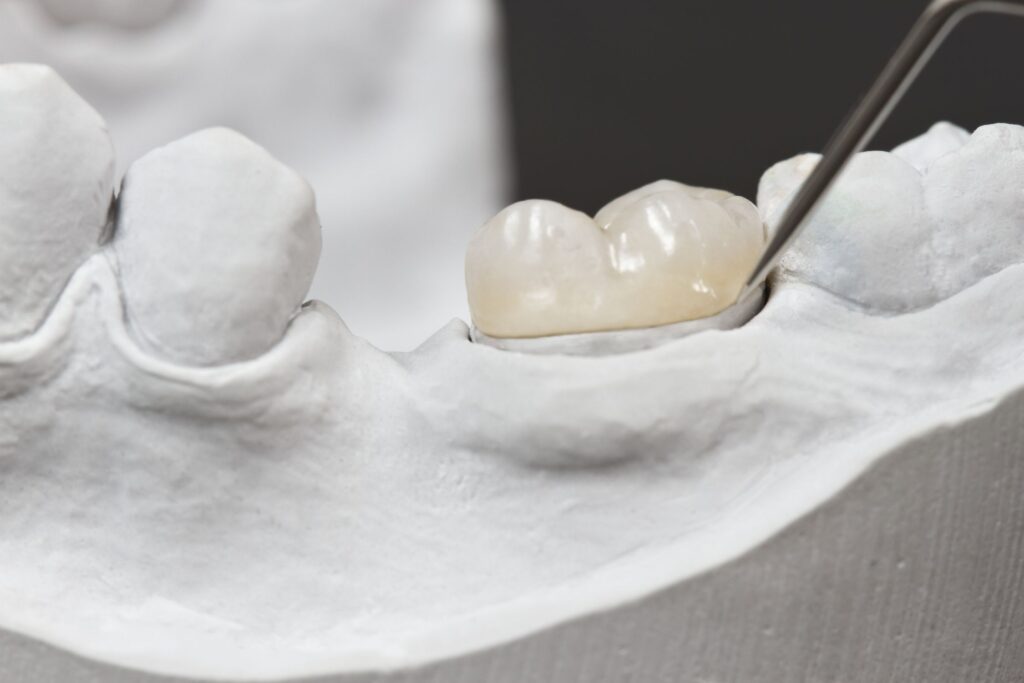
Do you have a severely decayed, damaged, or aching tooth, or did you recently undergo a root canal procedure? If so, your dentist will likely fit you with a dental crown to protect your injured tooth while restoring its appearance and functionality.
Although these prosthetics can potentially preserve your teeth in circumstances that might otherwise require extraction, many people hesitate to schedule their treatment because they’re worried it might hurt. Fortunately, dental crowns aren’t considered painful. Continue reading to learn more about what to expect so you can set your mind at ease!
What Are Dental Crowns?
Dental crowns are tooth-shaped caps made from resilient porcelain or resin bonded over a damaged pearly white to shield it from sustaining additional injuries and allow you to continue eating and speaking normally. They are customized to match the shade, shape, and size of your natural teeth for seamless results once it’s cemented in place.
These restorations can last 15+ years if cared for correctly and maintaining them is easy. Brush and floss twice daily to remove plaque and bacteria and visit your dentist every six months for a routine examination and cleaning. This allows them to monitor and address any areas of concern, like weakening enamel, before they can progress and impact your prosthetic.
Does the Dental Crown Process Hurt?
Typically, it takes at least two appointments to be fitted with a dental crown. During your initial visit, your dentist will update your medical history and examine your mouth to determine the extent of the damage and whether you’re a good candidate for this treatment. If so, they’ll prepare your troublesome tooth by numbing the area with a local anesthetic and then removing a small amount of enamel, so your restoration fits appropriately.
Next, they’ll make digital impressions of your teeth, which are sent to a special dental lab that uses the information to design and carve your new tooth. This process can take a few weeks, so your provider will likely give you a temporary crown to protect your tooth until it arrives.
It’s possible to develop mild tooth sensitivity due to thinned enamel after your appointment, but this typically fades in a few days and can be addressed with over-the-counter meds like Tylenol or ibuprofen.
Then, once your finished crown is delivered, we’ll schedule you for a second visit to ensure it fits correctly before bonding it over your tooth. This step is so straightforward that most patients don’t even require any numbing, but if you’re overly anxious, you can inquire about sedatives to help you remain calm throughout your appointment.
As you can see, there’s no reason to fear getting a dental crown!
About the Author
Dr. Nicholas Brong takes pride in helping you and your family build your happiest, healthiest smiles. He earned his Doctor of Dental Surgery at the University of California, San Francisco and has completed additional training in topics like dental implants, oral surgery, and soft-tissue laser surgery, among others. He’s an expert who can help with everything from basic preventative care to more complex restorations, like dental crowns. You can request an appointment on the website or call (507) 288-1066.





